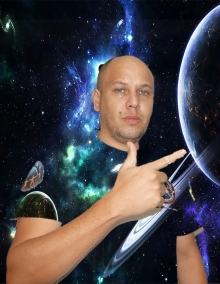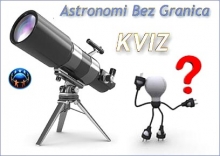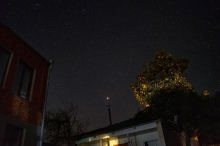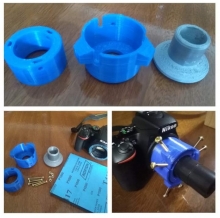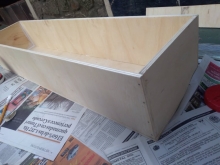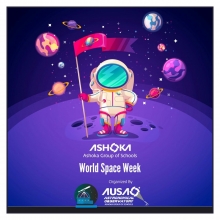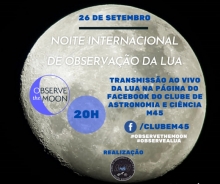Shaila Akhter
In any family or community, we all have different skills and knowledge. Outreach connects us together by sharing our knowledge with each other.
"If you have an apple and I have an apple and we exchange apples then you and I will still each have one apple. But if you have an idea and I have an idea and we exchange these ideas, then each of us will have two ideas.” - George Bernard Shaw. In fact, by sharing our ideas they become better and new ideas are born.
So, what does outreach do? It:
- connects us with people
- lets us share our knowledge with others
- lets us learn more while sharing and discussing with others
- reduces the gap between peoples' knowledge
- keeps our knowledge up-to-date
- dissolves false ideas about science
- allows us to learn and achieve more, by sharing our “2 cents” worth of knowledge with others
- crafts new scientists
People who offer outreach also benefit. From my personal experience:
- we learn facts faster
- science communication skills are enhanced faster - these help us to express our science in a more comprehensible manner
- we get to know people with diverse backgrounds, what they know, and how they think and accept knowledge. It helps to spread science in a wider community or in other words it performs science networking.
- we learn more by expressing our science to others
- to be a good astronomer or scientist we need skills in writing, analytical thinking, speaking, reading - outreach and science communication help us develop all those skills, making our thinking consistent and composed.
The effects of the globalisation and advancement of science are varied…
- Modern science has been advancing at such a rapid rate that there now exists a large gap between general knowledge and the technical knowledge of any particular academic field.
- Moreover the increasing expense of higher education is also a barrier for people to learn modern science.
- In any field of science today focuses on sophisticated areas of study, which includes highly advanced instruments, high performance computing or super computing, the inclusion of computer programming or usage of problem focused software. Therefore, branches of modern science including astronomy, nano-physics, quantum chemistry, etc. are far from the practical reach of the general population (without years of study and training) and this is creating a large gap between scientists and non-scientists.
So, how would we like to see the future? We shouldn’t educate only ourselves. We want to live in a society or a world where we all can grow together - so let’s reduce the gap of knowledge and create a better future!
How can we do it? Getting involve in outreach! This can be:
- giving public lectures
- demonstrating how science works
- writing science blogs
- podcasting and vodcasting
- making youtube videos of lectures, tutorials, other relevant events, etc.
- any sort of presentations
- Finding outreach events and joining them
- opening a Facebook page (or in any such social media) where you can share your knowledge or communicate science among many
Talk about your own science to your parents, grand-parents, friends from different backgrounds, to your neighbours, even to the passengers on public transports - this is the simplest way we can contribute to the community - this is outreach! We will also feel happy by sharing what we do and will receive countless appreciations, encouragement and inspirations! And, if your parents can understand your science, then you’re doing a pretty good job communicating it!
One great thing about outreach is that it does not discriminate! Rather, it unites us all with our curiosity - irrespective of age, gender, race, literacy level, level of skill, culture, colour, religion or any such division. How cool is that! If we want to see a better future - we have to take charge of it - all of us!

What I do for outreach:
As an Astronomy student, I was involved in astronomy outreach activities that the school offered me when I first started astronomy (MPhil at ANU, RSAA). After I left ANU and started my doctorate degree at the UNSW Australia, I again got involved in outreach activities at the UNSW Physics outreach unit. I have actively been an Outreach Presenter for this unit since January 2013. I have been involved in the organisation of many events both on-campus and off-campus. Activities include: portable planetarium show, telescope viewing (solar & night) and physics demonstrations. I also contribute to the UNSW Physics Facebook page and various multimedia public productions. These days I am an outreach co-ordinator in the UNSW Physics unit. I also give public talks and talk about physics and astronomy wherever I go, and promote science whenever the opportunity arises. I am also a student representative for the ASA EPOC (The Astronomical Society of Australia's Education and Public Outreach Chapter). In addition, I am a monthly podcaster at the 365 days of Astronomy, organised by the CosmoQuest.
Astronomy and physics outreach may not lead me to earn a lot of money and live a lavish lifestyle - but surely it can give me something that money cannot buy. A life full of events, adventures, cool experiences, and connecting with people from diverse backgrounds, connecting with nature and so much more! Wherever on earth I go, in most places I will get to see the natural laboratory for astronomy - the one sky that we all share together!
Outreach is something through which you can directly contribute to society and the world. If you love the sky, if you love astronomy, no matter who you are, no matter where you are, you can always contribute to astronomy outreach!
If you have knowledge, let others light their candles in it. - Margaret Fuller

###
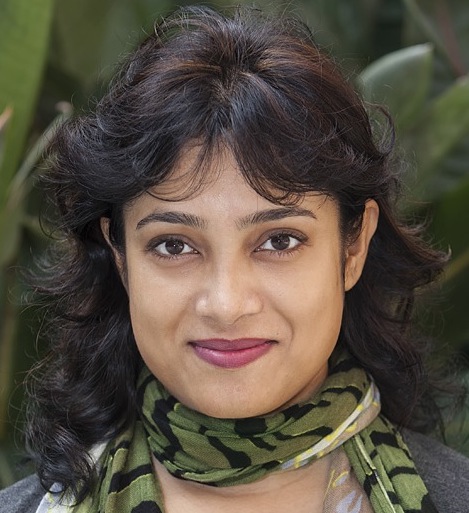 Shaila Akhter was born and grew up in Bangladesh. When she was a child, her father used to take her in his lap and every night he used to show her the night sky with lots of beautiful stars! Ever since she has always dreamt to be an Astrophysicist! She completed her Master of Philosophy program in the Research School of Astronomy and Astrophysics, Mount Stromlo Observatory, at the Australian National University. Currently she is a PhD candidate at the School of Physics, UNSW Australia. She is also a co-supervised student of CASS that is the Commonwealth Science and Industry Research Organization Astronomy and Space Science. Her present research addresses how massive stars, that are eight to twenty times the mass of the sun, form in molecular clouds.
Shaila Akhter was born and grew up in Bangladesh. When she was a child, her father used to take her in his lap and every night he used to show her the night sky with lots of beautiful stars! Ever since she has always dreamt to be an Astrophysicist! She completed her Master of Philosophy program in the Research School of Astronomy and Astrophysics, Mount Stromlo Observatory, at the Australian National University. Currently she is a PhD candidate at the School of Physics, UNSW Australia. She is also a co-supervised student of CASS that is the Commonwealth Science and Industry Research Organization Astronomy and Space Science. Her present research addresses how massive stars, that are eight to twenty times the mass of the sun, form in molecular clouds.
Beyond her research, she is heavily involved in public outreach. She is the outreach co-ordinator for the UNSW Physics outreach unit. She is a monthly podcaster at the 365 days of Astronomy, organised by the CosmoQuest. She also enjoys tutoring and demonstrating physics laboratories for undergraduates in our University. She is also a teaching assistant for some Astronomy online courses at UNSW.
https://www.physics.unsw.edu.au/staff/shaila-akhter








